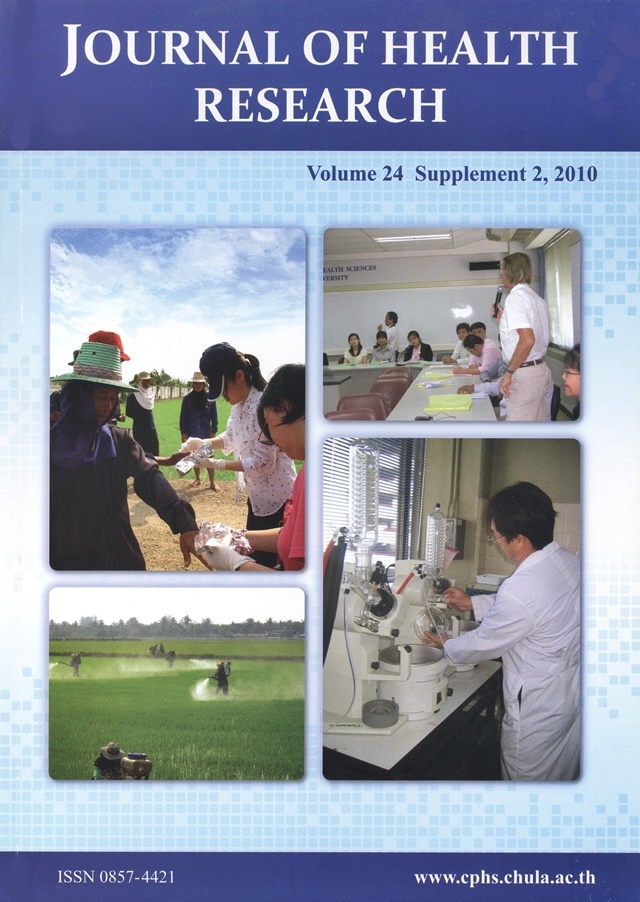Living and Working Environment, and Factors Associated with the Safe Sex Behavior and Sexually Transmitted Infection of Myanmar Migrant Workers in Muang District, Ranong Province, Thailand
Keywords:
Myanmar migrant, socio demographic characteristics, sexual behavior, living and working environment, sexually transmitted infectionAbstract
A cross-sectional descriptive study was conducted on March 2010 with the objective of assessing the living and workmg environment and factor associated with the safe sexual behavior and health status related to unsafe sexual behavior of Myanmar migrant workers in Muang District, Ranong Province, Thailand. Multi-stage purposive sampling method was used for the study and 406 households were recruited in the survey. For data analysis, chi-square test was used. Respondents aged between 19 and 50 years from each household were selected and interviewed by using self-administered questionnaires. Female and male respondents are selected half by half (female 203 and male 203). Out of 406 respondents, 41.4% is single, 50.7% are manied and 5.7% and 2.2% are divorced and widowed. Most of the respondents are Buddhlsm (65.3%). Their major jobs are Factory worker and fisherman. Among the 406 respondents, half (51.0%) live in dawn town and over 50% (205) respondents live with roommates. For worlung environment, over half(224) respondents work 10-14 hours per day. 307(77.5%) possess work permit. 37.3% of the respondents need to wave1 due to their work. Among 384 sexually active respondents, 47.7%(183) have poor sex behavior, 17.7 have fair and 34.6 have good sex behavior. 24.1% have sexually transmitted infection. There is sipiicant relationship between gender (P-value 0.001), type of job p-value <0.001), job needs to travel (0.001) duration of stay in Thailand (0.00 1) and safe sex behavior. In 203 male respondents, 109 (52.7%) had sex with sex workers and only 36.2% use condom when have sex with sex worker. There is sigruficant relationship between gender p-value 0.006), marital status p-value 0.041), duration of stay in Thailand p-value<0.001) , working years p-value 0.001), job location p-value-<0.001), job needs to travel p-value 0.001) and sexually transmitted infection.Downloads
Published
2018-11-28
How to Cite
Aung, Y. N., & Pongpanich, S. (2018). Living and Working Environment, and Factors Associated with the Safe Sex Behavior and Sexually Transmitted Infection of Myanmar Migrant Workers in Muang District, Ranong Province, Thailand. Journal of Health Research, 24(Suppl. 2), 107–110. retrieved from https://he01.tci-thaijo.org/index.php/jhealthres/article/view/157599
Issue
Section
ORIGINAL RESEARCH ARTICLE







